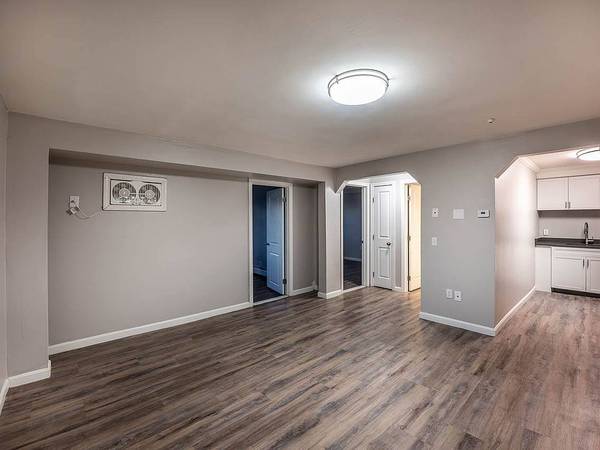How long do evictions stay on your record? If you're a tenant who has experienced an eviction, you may be wondering how it will impact your ability to secure future housing. An eviction on your rental history can be a major red flag to potential landlords, making it difficult to find a new home.
In this blog post, we'll provide you with a comprehensive understanding of what an eviction is, how it affects your rental history, and how long it will stay on your record. We'll also offer tips and strategies to help you overcome the challenges of having an eviction on your record. Read on to learn more.
How Long Do Evictions Stay On Your Record?
An eviction can have a lasting impact on your rental history, as it can remain on your record for up to seven years. This can pose a challenge for finding a suitable rental even if you have since improved your situation. However, there are ways to minimize the impact of an eviction and increase your chances of being approved for a lease.
How does an eviction affect my rental history?
While an eviction won't show up on your credit report, it can still impact your rental history. It can be included in tenant screening reports for up to seven years, which future landlords may check before approving your lease application. If you're currently looking for a rental property, it's a good idea to ask the landlord or leasing company which tenant screening company they use.
This will give you an opportunity to review your screening report and address any potential issues, including an eviction, before submitting your application.
Can I dispute an eviction with the credit bureaus?
If you believe that an eviction has been reported inaccurately to the credit bureaus, you have the right to file a dispute with them. The three major credit bureaus, Experian, TransUnion, and Equifax, allow consumers to dispute any incorrect information on their credit reports.
To begin the process, you should obtain a copy of your credit report from each agency and review the information carefully to ensure that it is accurate. If you find any errors related to an eviction, you can file a dispute with the credit bureau and provide evidence to support your claim.
Keep in mind that disputing an eviction may not necessarily result in its removal from your rental history, as landlords may still be able to access this information through other sources.
However, disputing inaccuracies on your credit report can help ensure that your credit score is not negatively impacted by incorrect information.

Can I remove a civil judgment from my credit report?
Fortunately, there are certain circumstances under which you may be able to dispute the judgment with the credit bureaus. One argument you could make is that the debt in question was actually paid on time. In this case, you would need to provide documentation to the credit agencies showing that you fulfilled your financial obligation. If you are successful in proving that the debt was paid, the judgment should be removed from your credit report.
Can i be evicted without a court order?
It is illegal for a landlord to evict a tenant without a court order, regardless of whether or not there is a lease agreement. The process of eviction can take a few weeks from start to finish, and it can only be initiated through a formal eviction proceeding. Therefore, a landlord must obtain a court order before they can legally evict a tenant.
Can a landlord evict me for any reason?
Under the law, a landlord cannot evict a tenant for any reason. In cases where the tenant is protected by the law, the landlord can only evict for one of the "at fault" or "no fault" reasons listed in the law. The term "at fault" means that the landlord believes the tenant has done something wrong, such as not paying rent.
Related: What Are My Rights As A Tenant?
Can I be evicted if I have a lease?
A landlord cannot legally evict a tenant with a lease without a court order. A lease is a legally binding agreement that outlines the terms and conditions of the tenancy, and the landlord must follow the legal eviction process to terminate the lease and evict the tenant. However, if the tenant violates the terms of the lease, the landlord may have grounds for eviction.
What are some legal defenses against eviction?
There are several legal defenses available to tenants facing eviction. For instance, if you believe that your landlord is trying to evict you based on discriminatory grounds such as your race, sex, religion, national origin, marital status, sexual orientation, number of children, job, physical or mental disability, or because you receive public assistance, you may be able to use this as a defense in court.
How far behind on rent can I get before eviction?
The amount of unpaid rent that can lead to eviction may vary depending on the terms of your tenancy agreement. Generally, if you are paying rent weekly, you may face eviction if you are eight weeks behind, and if you are paying monthly, you may face eviction if you are two months behind.
How can I avoid eviction?
To avoid eviction, it's important to take action as soon as possible if you're struggling to pay your rent. One option is to create a plan to catch up on your overdue payments. Additionally, you may be able to apply for assistance from state or local organizations that offer funding for housing expenses such as rent and utilities.
Another strategy is to communicate with your landlord and work together to develop a repayment plan that meets both of your needs.
Finally, research the specific protections that are available in your state or locality, as they may provide additional options for avoiding eviction.

How do I get around an eviction on my record?
One effective solution is to have the eviction expunged. Expunging an eviction means that it will no longer be visible to potential landlords, and you can confidently answer "no" when asked if you've ever been evicted. This can greatly improve your chances of being approved for a new rental property.
Can I negotiate with my landlord to avoid eviction?
If you are at risk of eviction, it might be feasible to engage in discussions with your landlord to prevent it. Clearly communicate your circumstances and propose a feasible strategy to compensate for any unpaid rent. You could suggest paying a fraction of the rent in advance and committing to a specific date for the remainder, but it is crucial to conduct thorough research and comprehend your entitlements and possibilities before engaging in any negotiations.
Will an eviction affect my ability to buy a home in the future?
Unfortunately, an eviction can have far-reaching consequences beyond merely losing your current residence. In addition to the practical difficulty of finding a new place to live, an eviction can have a severe impact on your credit score, potentially making it more challenging to obtain a mortgage, credit card, or car loan in the future.
How to improve your credit scores after an eviction
Firstly, it's important to monitor your credit reports and scores closely, so you can keep track of any changes and progress as you work towards improving your credit history. Next, focus on building a positive payment history by paying all bills and debts on time.
Additionally, lowering your credit utilization ratio can also help improve your credit scores. Finally, consider applying for a secured credit card, which can be a useful tool for establishing credit and demonstrating responsible credit behavior.
Conclusion
Thank you for reading! We hope this article was helpful in answering the question how long do evictions stay on your record
In summary, an eviction can have a lasting impact on a tenant's rental history, as it can remain on their record for up to seven years. To get around an eviction on your record, you may have the option of having the eviction expunged. If you believe that an eviction has been reported inaccurately to the credit bureaus, you have the right to file a dispute with them.





